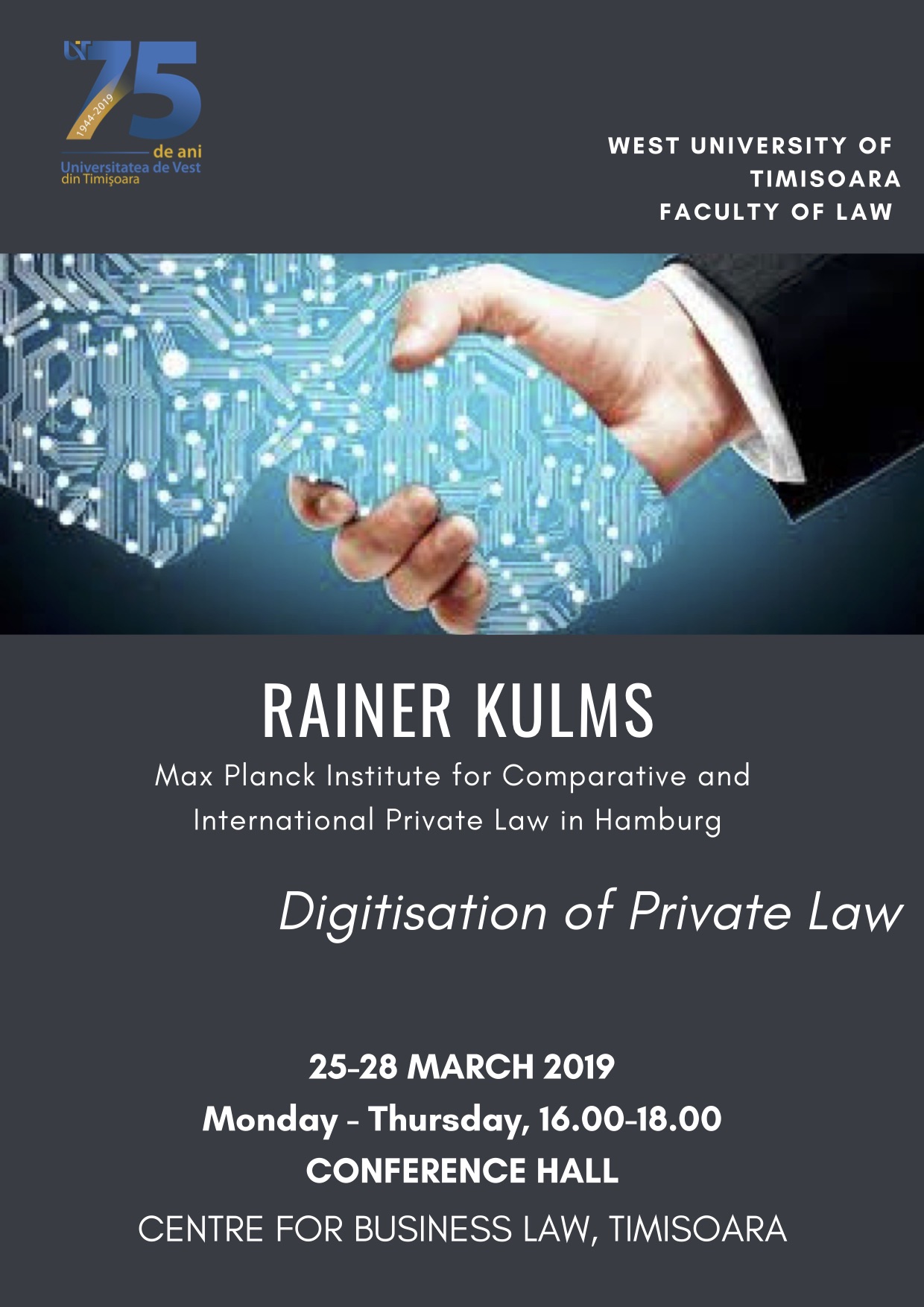West University of Timișoara
Faculty of Law
Master in European Union Law / Master in Business Law
Doctoral School in Law / Private Law
Digitisation of Private Law
Rainer Kulms
Max Planck Institute for Comparative and International Private Law in Hamburg
25-28 March, 2019 (Mon-Thu, 16-18)
Conference Hall, West University of Timișoara, Faculty of Law
Digitisation is on the policy agenda of the EU Commission and the Member States. Time has therefore come to explore the effects of digitisation on private law. “Digitisation of Private Law” will assess the digital challenges to traditional concepts of formation of contracts, the law of contractual and non-contractual obligations, property law, the law of successions and the law of civil procedure.
When contracts are digitally formed, offer and acceptance are processed automatically. Electronic signatures and documents play an important role. But once ‘smart contracts’ and artificial intelligence are employed, the law of contracts will change even more dramatically as software agents take over. This will impact on the structure of contractual duties and tort liability towards third parties.
Data are non-physical. Digital transactions will require a fresh approach towards property law. This applies to questions of ownership of data, but also to digital assets which are the object of a contract. More generally, digital assets and interests become part and parcel of the digital estate. Practitioners will enquire under what circumstances a digital asset acquires third-party effects like any piece of physical property with important repercussions for insolvency law. Obviously, the effects of such a classification will also be important for the law of successions. A civil procedure section will supply supplementary information on digital evidence.
This class builds on a combination of legal theory and case studies. In order to demonstrate the scope of digitisation in private law case studies will be offered on online ordering, platforms, crowdfunding, blockchain technology, robo-advice, and the digital cloud.
A reader will be provided to the students at the beginning of the spring 2019 semester.

